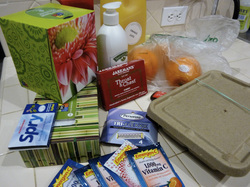 We are seeing more people, especially children, with allergies these days. There are several thoughts about why this is happening, but overall it’s generally described as a hypersensitivity or oversensitivity of the body to an external stimuli. One such theory referred to as the 'hygiene hypothesis' proposes that many children do not get sufficient exposure to a wide variety of microbes, and as result of growing up in an extremely clean environment devoid of microbes the body does not learn how to modulate the immune response effectively. Thus creating a situation where later exposure to a substance causes a hyperactive response, or allergy. There seems to be some credibility for this theory since the significant increase in individuals suffering from allergies has been mainly in the western hemisphere, and we have not seen a corresponding increase in other parts of the globe. However, as more countries become more affluent and the number of people below the poverty line decreases we are seeing an associated rise in atopic conditions such allergy and asthma there as well. In the US: · Number of people in the U.S. who have either allergy or asthma symptoms: one in five. · Percentage of the U.S. population that tests positive to one or more allergens: 55%. Internationally: The prevalence of asthma in different countries varies widely, but the disparity is narrowing due to rising prevalence in low and middle income countries and plateauing in high income countries. Symptoms: · Postnasal drip · Sniffling · Dark circles under eyes (allergic shiners) · Puffiness beneath the eyes · Restlessness · Fatigue · Poor sleep · Headaches · Behavioural problems such as irritability, hyperactivity, poor concentration, whining, and pickiness about food Chronic allergies, especially those that cause allergic rhinitis, a persistent inflammation of the mucous membranes lining the nasal passages, can lead to constant head congestion, decreased hearing ability, reduced concentration, and difficulty remaining alert. Children with allergies may frequently feel tired and irritable. Hyperactive behavior may also emerge as a result of allergies due to nervous irritability from chronic inflammatory response or the need to keep moving to stimulate endogenous adrenaline supplies. While a tendency towards allergies may be inherited, the extent to which they manifest may have more to do with dietary, emotional and environmental factors than genetic factors.
Suffering from allergies can be a very irritating experience. If you or your child is suffering from allergies, it is best to take them to a Naturopathic Doctor who can perform a proper assessment and form a treatment plan that will address your/your child’s needs. Always speak to your health care provider before beginning any new medications or supplements. References: 1. Allergy Statistics and Facts. WebMD. Reviewed by Johnson, K. (2012). http://www.webmd.com/allergies/allergy-statistics 2. Asthma Statistics. American Academy of Allergy, Asthma & Immunology. http://www.aaaai.org/about-the-aaaai/newsroom/asthma-statistics.aspx 3. Romm, A. 2003. Naturally Healthy Babies and Children: A Commonsense Guide to Herbal Remedies, Nutrition, and Health. Celestial Arts. 4. Skowron, JM. 2009. Fundamentals of Naturopathic Pediatrics. CCNM Press. Print.
2 Comments
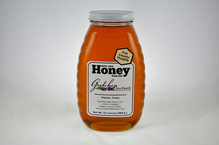 Colds & Flus and the accompanying cough that goes with them, are a common household problem, particularly during the winter months. The following is a recipe for making your very own all-natural cough syrup at home. This can be used with adults or children over the age of 1 (different remedies can be used for those under 1 year), tastes better than it sounds, saves money, and is more effective than over the counter (OTC) varieties. Why use Natural Cough Syrup instead of OTCs? The research supports the ineffectiveness of cough syrups and other similar products. A 2010 review of studies found that there is no evidence to support using common over-the-counter drugs for cough. This includes cough suppressants, such as dextromethorphan, or expectorants such as guaifenesin, which are supposed to loosen up mucus in the airways. In 2008, the FDA recommended avoiding the use of cough syrup in children under the age of 4 because there was no proof of effectiveness, and little research on side effects. The American Academy of Pediatrics took this a step farther, saying to avoid use in children under 6. What they did find through further study was honey proved to be mildly effective, but is not to be given to children under 1 year. Note: If you have a productive cough (are bringing up mucous when you cough) avoid suppressing it. Coughing is important for loosening the phlegm or mucous and getting it out of your lungs.
Directions
· Slice the onion evenly. Place the base of the onion in your jar, and then pour honey in a layer over it (or cover in a layer of sugar, if that’s your sweetener of choice.) · Continue to alternate layering the onion and sweetener. When you’re finished, cover tightly and let it sit overnight out on the counter, or for 8-12 hours. · After it has sat out, there will now be liquid in the jar. Use a spoonful as needed to control your cough (3 spoonful’s an hour, if needed.) · You can use both the honey and brown sugar if you like, just adjust the layering accordingly, and remember that it will be sweeter! · If you choose to use garlic, unlike onion, there is no exact amount to put in. Start with 9-12 cloves or so roughly chopped and find your flavor balance from there. Just remember you shouldn’t use too little; otherwise it won’t work as well. Directions for kids · If you have a child too young to have honey, don’t despair because every single home cough remedy seems to have honey in it! The above recipe can be safely made for kids-just omit the honey and use only the sugar. Note: This syrup should be used fresh. After you make it, you can store it in the fridge for up to 2 days. After that, just whip up another batch. Note: This information is not meant to replace the advice of a trained practitioner. In order to formulate a proper treatment plan, you should consult with your Naturopathic Doctor or other health care provider. References: Griffin, R.M. (2014) Cough Medicine: Should You or Shouldn’t You? Get the facts on cough medicine. Chang, L. (Ed.) WebMD Feature. http://www.webmd.com/cold-and-flu/features/cough-medicine-should-you-shouldnt-you Everyday Roots (2013). Homemade Cough Syrup. http://everydayroots.com/homemade-honey-and-onion-cough-syrup  February Is Heart Health Month In the spirit of reminding everyone about the importance of keeping your heart healthy, this post is going to be all about heart health and how to recognize the warning signs of heart attack. Did You Know? Every 7 minutes in Canada, someone dies from heart disease or stroke (Statistics Canada, 2011c). Heart disease and stroke are two of the three leading causes of death in Canada. These statistics are based on 2008 data (the latest year available from Statistics Canada).
What Is Heart Disease? Cardiovascular diseases are defined as diseases and injuries of the cardiovascular system: the heart, the blood vessels of the heart and the system of blood vessels (veins and arteries) throughout the body and within the brain. Stroke is the result of a blood flow problem in the brain. It is considered a form of cardiovascular disease. How Can I Tell Someone Is Having a Heart Attack? Common Symptoms - Pain in the chest/ arm, often the left arm. For women, a more common symptom is jaw/neck pain. - Stomach pain, can feel similar to heartburn - Shortness of breath - Anxiety. Some people actually describe feeling ‘an impending sense of doom’ - Lightheadedness - Sweating - Nausea and vomiting Are Symptoms Always Obvious? Most heart attacks begin with subtle symptoms — with only discomfort that often is not described as pain. The chest discomfort may come and go. Don't be tempted to downplay your symptoms or brush them off as indigestion or anxiety. Don't "tough out" heart attack symptoms for more than five minutes. Call 911 or other emergency medical services for help. If you don't have access to emergency medical services, have someone drive you to the nearest hospital. Drive yourself only as a last resort, if there are absolutely no other options. Heart attack symptoms vary widely. For instance, you may have only minor chest discomfort while someone else has excruciating pain. One thing applies to everyone, though: If you suspect you're having a heart attack, call for emergency medical help immediately. What Can Naturopathic Medicine Do for Heart Health? One of the central tenants of Naturopathic Medicine is teaching the principles of healthy living and preventative medicine. That means we work to help prevent heart disease BEFORE it happens. We can utilize many tools to help you achieve optimal health:
We'll formulate an individualized treatment plan focusing on your particular risks and needs to significantly decrease your risk of heart attack and stroke. That being said, there are also many things we can do after a heart attack or stroke to increase healing, decrease recovery time and maximize your quality of life.
Have more questions about what Naturopathic Medicine can do for you and your heart? Take advantage of our Free 15 minute consults to find out more today. References: Heart and Stroke Foundation of Canada. ‘Health Information’. http://www.heartandstroke.com/site/c.ikIQLcMWJtE/b.3484021/k.7C85/Heart_Disease.htm Mayo Clinic. Heart Attack Symptoms: Know what’s a medical emergency. http://www.mayoclinic.org/diseases-conditions/heart-attack/in-depth/heart-attack-symptoms/art-20047744 Murray M. & Pizzorno, J.. (1998) Encyclopedia of Natural Medicine (2nd Ed.). Heart Disease, pg 500-507. Three Rivers Press. Godfrey A. & Saunders P.R. (2010) Principles & Practices of Naturopathic Botanical Medicine: Volume I: Botanical Monographs. Cardiovascular System, pg. 81-138. CCNM Press. |
Sarah Connors
I am a Naturopathic Doctor and Doula providing care in the Kitchener-Waterloo area. I have a passion for helping people with their health issues and improving the birth experience for Moms, and their babies. I also have a life long love affair with soccer, curling, and the alto saxophone. Archives
November 2020
Categories
All
|
Photos from Rural Royalty, manu flickr2010, Ryan Dickey, wocintechchat, huskyte77, paulswansen, Black Room Photography, harum.koh, Emery Co Photo, JeepersMedia, BrownGuacamole, wellnesswildflower, JeepersMedia, vastateparksstaff, colindunn, seelensturm, /\ \/\/ /\, 50mm.za, The Simpsons (Lee, Shirley, Luke and Rachel), AGRONAUTI, aivas14, Jonathan Rolande, winnifredxoxo, juhansonin, osseous, nan palmero, Theo Crazzolara, brianfagan, TP studio, wuestenigel, torbakhopper, anka.albrecht, Michael Stern, [-ChristiaN-], franchiseopportunitiesphotos, terren in Virginia, nateOne, barnimages.com, Dun.can, wuestenigel, @lattefarsan, amandabhslater, aphrodite-in-nyc, nutritionaldoublethink, Anne Worner, donnierayjones, mikecogh, angeloangelo, Rob.Bertholf, getaiwan, Lida Rose, matsuyuki, SurFeRGiRL30, marcoverch, amsfrank, mdaltry, nutrition education, Mike Prince, Edsel L, Neighborhood Nini, philipp.alexander.ernst, Mediocre2010, homethods, quinn.anya, Gamma Man, katerha, Eric Kilby, National Institutes of Health (NIH), rcmd_cfdfw_5_2, curtis palmer, Ray in Manila, frankieleon, Airsoftpal.com, byzantiumbooks, cchana, Brian Legate, Matt Lavin, BradHinton, monpetitchouphotography, wuestenigel, alexisjordanlewis, ByEPhotos, erix!, RLHyde, return the sun, quinn.anya, mliu92, frankieleon, loudista, Lyn Lomasi, upslon, derrickbrutel, cchana, National Institutes of Health (NIH), watts_photos, marcoverch, derrickbrutel, francesbean, weegeebored, Airsoftpal.com, Etwood, wu_135, shixart1985, Ingrid Taylar, VeritasFotografie, BioDivLibrary, emmanuelmorales1, Thanks for 1.5 Million Views!!, Will Merydith, reader of the pack, RoxyHobbs, Khanelle Prod' Medias, storyvillegirl, agromonitor, Arenamontanus, six:eleven, cote, SweetOnVeg, nenoirenediaz, lucianvenutian, markhillary, anotherlunch.com, inkknife_2000, archibald jude, rawtrigger, Imaginary Museum Projects: News Tableaus, Pavel P., Courtney Emery, Thien Gretchen, physiognomist, bark, Michigan Municipal League (MML), alberth2, Merelymel13, neofob, Care_SMC, Parker Knight, B*2
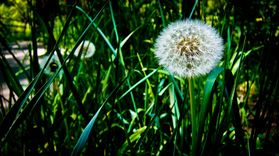
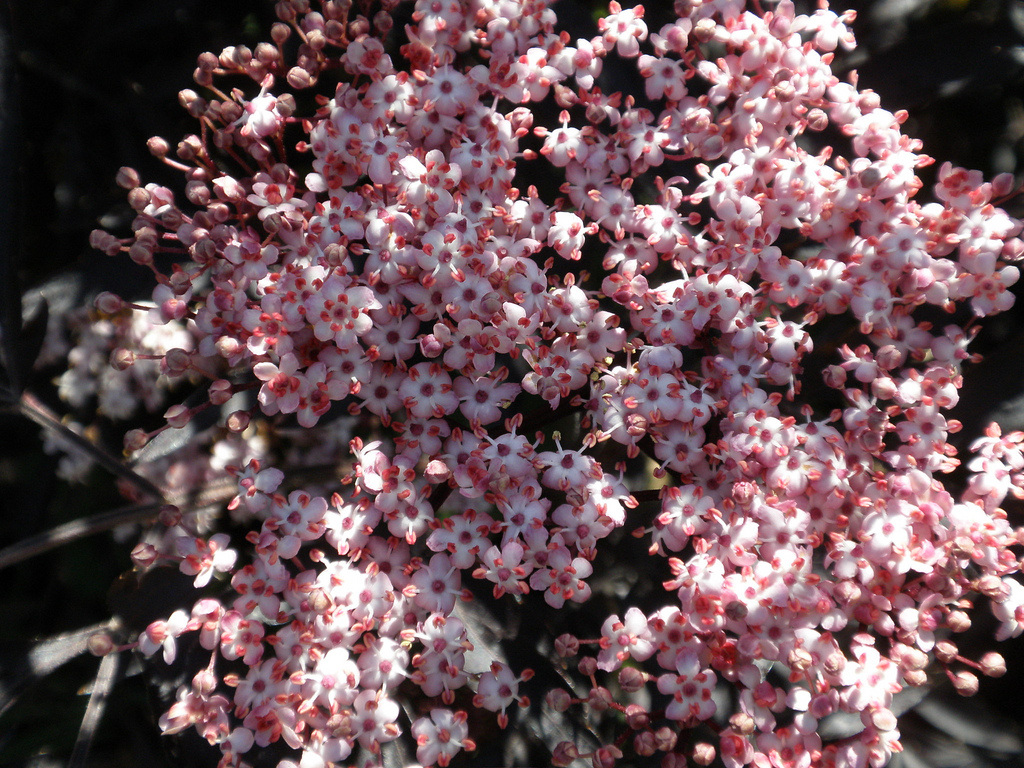

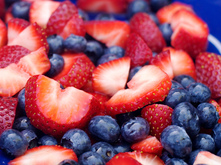
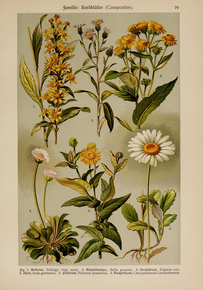
 RSS Feed
RSS Feed
